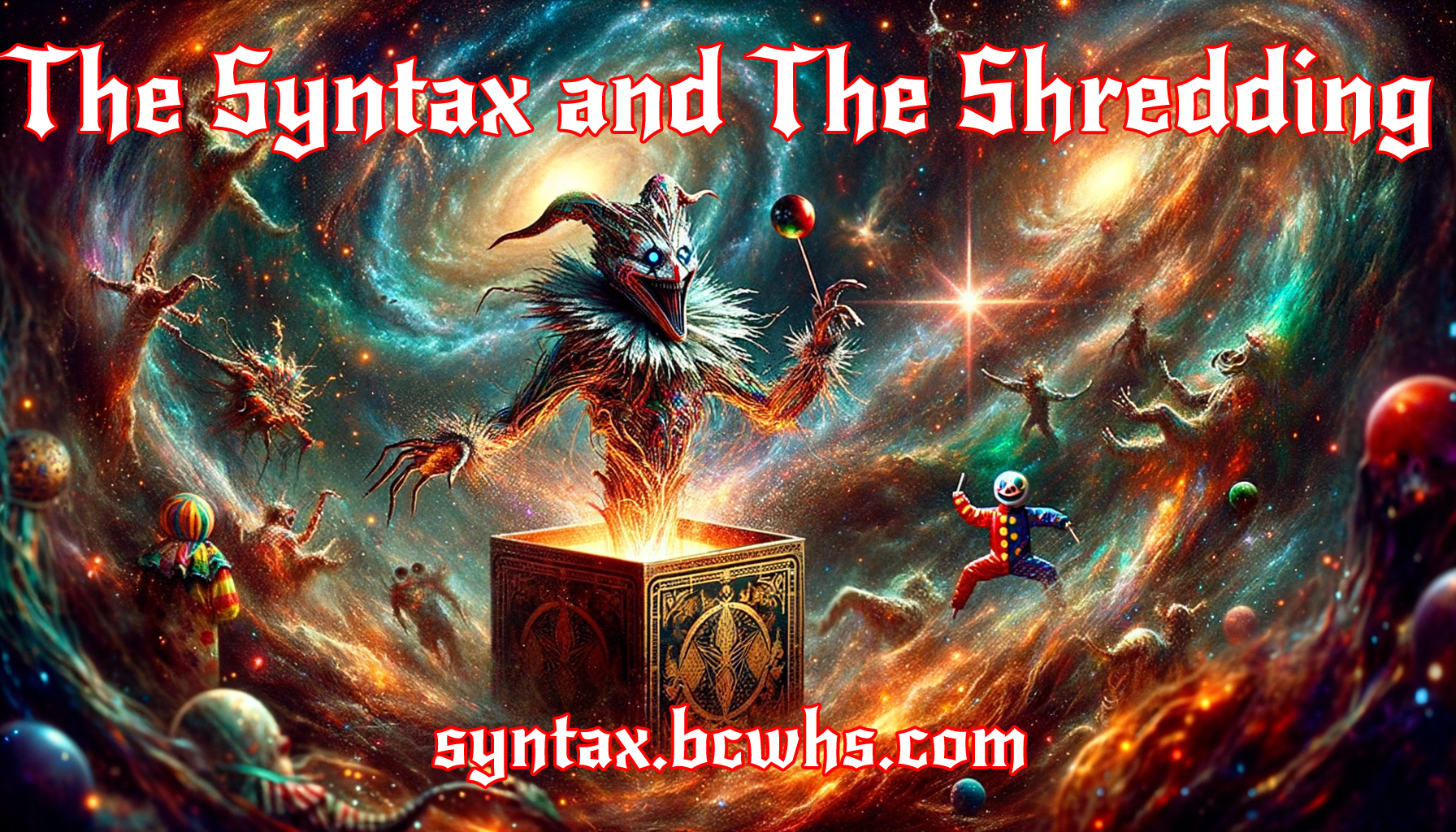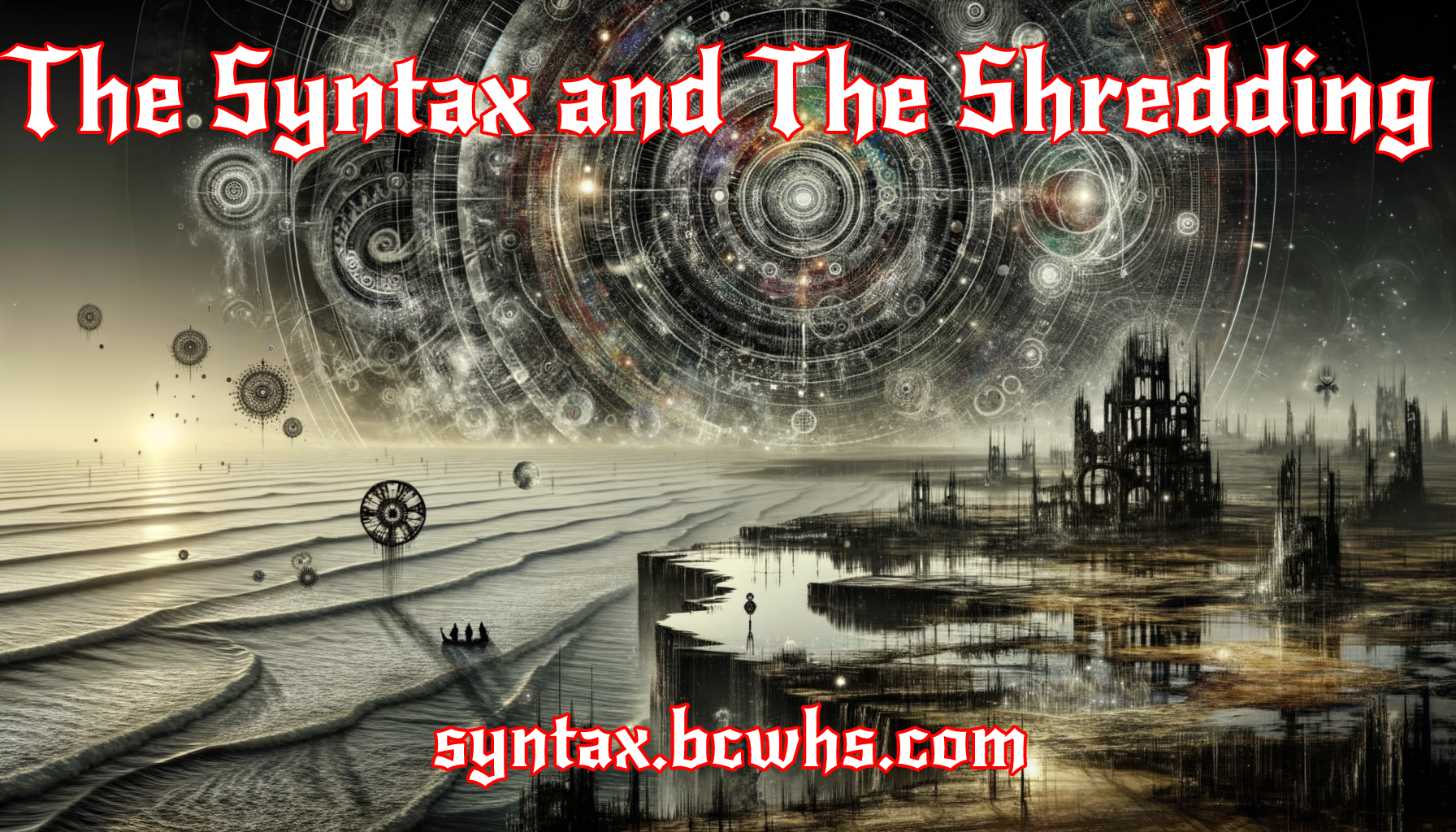The Syntax and The Shredding Podcast: Episode 4: CF's Revenge
Adobe CF Hackathon continuation with a revisit to the first episode but expanded to the next steps while listening to The Kovenant's The Sulphur Feast.
https://syntax.blackcatwhitehatsecurity.com/?season=1#Kovenant
#Syntax #Shredding #Podcast #Video #Music
The Syntax and The Shredding Podcast: Episode 4: CF's Revenge
Adobe CF Hackathon continuation with a revisit to the first episode but expanded to the next steps while listening to The Kovenant's The Sulphur Feast.
https://syntax.blackcatwhitehatsecurity.com/?season=1#Kovenant
#Syntax #Shredding #Podcast #Video #Music
The Syntax and The Shredding Podcast: Episode 2: The Legend of Power Metal and PowerShell's Gold
Power Metal and PowerShell go together like peanut butter and jelly. Check out my security PowerShell module while listening to Falconer's Royal Galley.
https://syntax.blackcatwhitehatsecurity.com/?season=1#Falconer
#Syntax #Shredding #Podcast #Video #Music
The Syntax and The Shredding Podcast: Episode 2: The Legend of Power Metal and PowerShell's Gold
Power Metal and PowerShell go together like peanut butter and jelly. Check out my security PowerShell module while listening to Falconer's Royal Galley.
https://syntax.blackcatwhitehatsecurity.com/?season=1#Falconer
#Syntax #Shredding #Podcast #Video #Music
The Syntax and The Shredding Podcast: Episode 1: CF's New Hope
My Adobe ColdFusion 2025 Hackathon entry review to Opeth's April Ethereal.
https://syntax.blackcatwhitehatsecurity.com/?season=1#Opeth
#Syntax#Shredding#Podcast#Video#Music
The Syntax and The Shredding Podcast: Episode 1: CF's New Hope
My Adobe ColdFusion 2025 Hackathon entry review to Opeth's April Ethereal.
https://syntax.blackcatwhitehatsecurity.com/?season=1#Opeth
#Syntax#Shredding#Podcast#Video#Music
I can’t count how many times my #CS professors told me that the #semantics of a #programming language is of prime import, but the #syntax thereof is but incidental, perhaps even accidental in some cases. And I can’t recall how many times I’ve repeated this to my own students and mentees, through the decades.
But as #programmers, we tend to attach undue emotional significance to the syntax, the “skin contact”, as it were, of the language.
My preferred syntax is the spartan, offside-rule syntax of the ISWIM family (ML, HOPE, Miranda, Haskell, Agda). I also like the blocky look of the ALGOL family (ALGOL, C, Pascal, Java, Zig). And, ignoring technical reasons for a moment and focusing exclusively on sentimental reasons, I adore the parenthetical syntax of the LISP family (LISP, Scheme, Common LISP, Clojure, Racket). And I do not know a licensed engineer who does not swear by the RPN syntax (UNIX dc, HP Reverse Polish keystrokes, HP Reverse Polish Lisp, FORTH). Of course, all assemblies look essentially the same, and every assembly programmer countenances this syntax. But I shall be polite and say nothing of the FORTRAN and BASIC syntaxes.
I can’t count how many times my #CS professors told me that the #semantics of a #programming language is of prime import, but the #syntax thereof is but incidental, perhaps even accidental in some cases. And I can’t recall how many times I’ve repeated this to my own students and mentees, through the decades.
But as #programmers, we tend to attach undue emotional significance to the syntax, the “skin contact”, as it were, of the language.
My preferred syntax is the spartan, offside-rule syntax of the ISWIM family (ML, HOPE, Miranda, Haskell, Agda). I also like the blocky look of the ALGOL family (ALGOL, C, Pascal, Java, Zig). And, ignoring technical reasons for a moment and focusing exclusively on sentimental reasons, I adore the parenthetical syntax of the LISP family (LISP, Scheme, Common LISP, Clojure, Racket). And I do not know a licensed engineer who does not swear by the RPN syntax (UNIX dc, HP Reverse Polish keystrokes, HP Reverse Polish Lisp, FORTH). Of course, all assemblies look essentially the same, and every assembly programmer countenances this syntax. But I shall be polite and say nothing of the FORTRAN and BASIC syntaxes.


